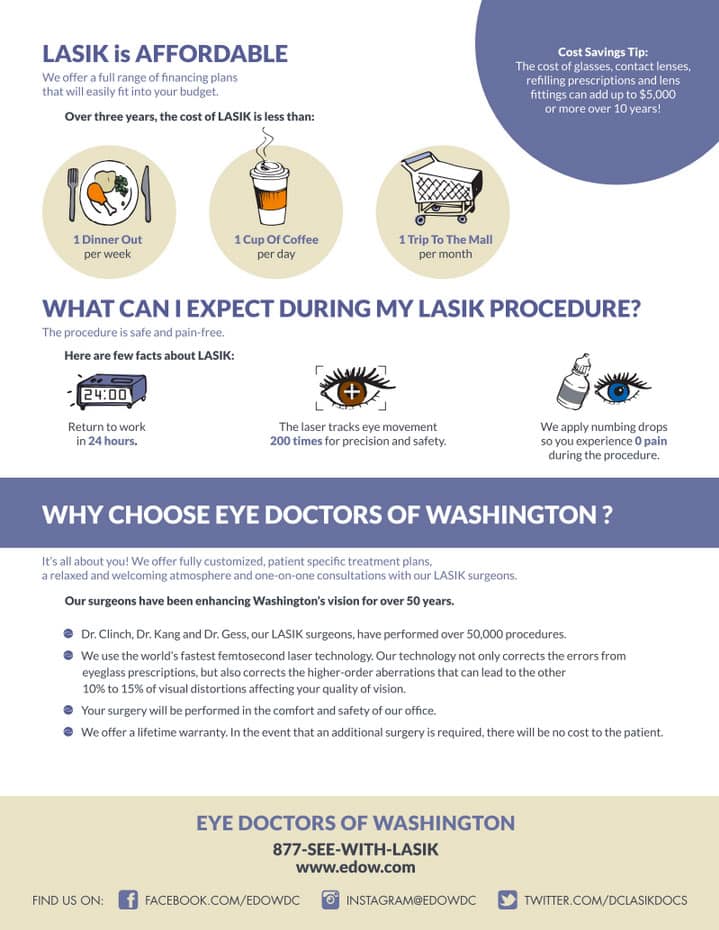The Comprehensive Frequently Asked Question On Refractive Lens Exchange: Whatever You Need To Hear From Concerning
The Comprehensive Frequently Asked Question On Refractive Lens Exchange: Whatever You Need To Hear From Concerning
Blog Article
Article Author-Miller Rodgers
If you're considering refractive lens exchange, you probably have a lot of inquiries. This treatment can alter just how you see the world, providing advantages like reduced dependence on glasses. Nevertheless, it's necessary to understand the procedure, dangers, and who certifies as a good candidate. Allow's explore these essential aspects so you can make an informed decision concerning whether RLE is right for you.
What Is Refractive Lens Exchange and Exactly How Does It Function?
Refractive lens exchange (RLE) is a surgery designed to replace your eye's all-natural lens with a synthetic one, remedying vision issues like nearsightedness, farsightedness, or presbyopia.
During the procedure, your cosmetic surgeon makes a tiny laceration in the eye, eliminates your all-natural lens, and inserts an intraocular lens (IOL) tailored to your vision requires. This outpatient surgery typically takes around 15 to half an hour per eye and is done under local anesthesia.
You'll likely see enhancements in your vision virtually instantly, though complete recovery might take a few weeks. RLE is specifically beneficial for those over 40 or with high prescriptions, using a durable solution compared to glasses or contact lenses.
Your eye treatment professional can assist identify if RLE is right for you.
What Are the Advantages and Risks of Refractive Lens Exchange?
Selecting refractive lens exchange can bring about considerable improvements in your vision, however it is essential to evaluate both the advantages and dangers prior to making a decision.
On the bonus side, this treatment can boost your vision by correcting concerns like presbyopia, nearsightedness, and hyperopia. https://rentry.co/qrsytueu take pleasure in minimized reliance on glasses or call lenses, which can significantly enhance their lifestyle.
However, it's vital to think about potential dangers. Difficulties can include infection, glare, or halos around lights.
There's likewise an opportunity of overcorrection or undercorrection, which might need extra procedures.
Who Is a Perfect Candidate for Refractive Lens Exchange?
If you're taking into consideration refractive lens exchange, it is essential to know whether you fit the account of an optimal candidate. Typically, you may be a good prospect if you're over 40, experience presbyopia, or have high levels of nearsightedness or farsightedness.
It's also vital that your vision is stable, suggesting your prescription hasn't altered considerably in the past year. If https://healthcare.utah.edu/healthfeed/postings/2019/03/lowdown-lasik.php have cataracts or various other eye conditions, you could take advantage of this procedure as well.
However, particular aspects, like unrestrained diabetes or autoimmune diseases, could invalidate you. To identify your candidateship, talk to an eye care expert who can examine your certain circumstance and recommend the very best course of action customized to your requirements.
Conclusion
Finally, refractive lens exchange can be a transformative alternative for improving your vision, particularly if you're over 40 or have a high prescription. While the advantages are considerable, it's crucial to consider the dangers and consult with your eye treatment professional to figure out if you're an excellent candidate. With https://click4r.com/posts/g/20364602/a-comprehensive-overview-to-laser-vision-modification and assistance, you can make an informed choice and potentially appreciate a life with minimized reliance on glasses.
